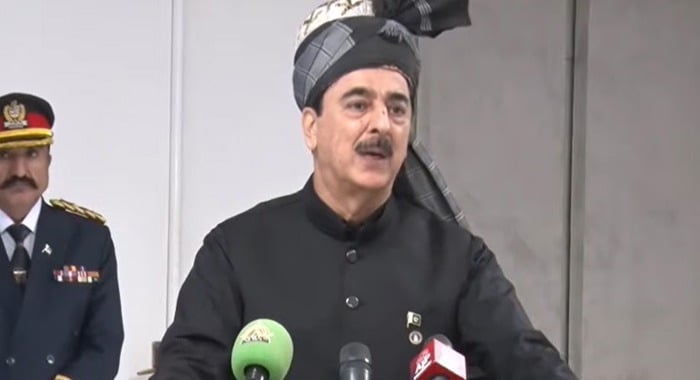Senate Chairman Yousaf Raza Gilani declared that peace in Pakistan cannot be achieved merely through the cessation of hostilities, but only through the establishment of justice—particularly for the people of the tribal districts who bore the brunt of the war on terror.
Addressing a grand tribal Jirga from the merged districts, Gilani said: “The absence of war is not peace peace is when justice is done. As long as there is injustice, there will be no lasting peace.” He described the people of the former FATA as the worst-hit victims of terrorism and called their sacrifices for national security “unmatched and unforgettable.”
The Senate Chairman recalled that during his tenure as Prime Minister, military operations in South Waziristan, Swat, and Malakand were carried out after extensive consultations with political and military stakeholders. “Those were difficult decisions, but they were necessary. We conducted the operations transparently and responsibly,” he said. “Over 2.5 million people were displaced, but we ensured their dignified return within 90 days.”
He said the resurgence of militancy in certain border regions requires urgent attention and clarity of policy. “Your borders remain the most vulnerable. Instability in Afghanistan has repeatedly spilled into Pakistan, and while our forces paid the price to restore peace, the international community failed to honour its commitments on refugee burden-sharing,” Gilani stated.
Highlighting Pakistan’s isolation in the fight against terrorism, he added: “No country suffered more. No nation paid a higher price. Yet, promises made to Pakistan were never fulfilled.”
Gilani further stated that the tribal belt’s security and integration must now be matched with socio-economic development. “The era of tokenism is over. The development of tribal districts is a national responsibility, not a favour,” he said, adding that he would formally request the government to meet the legitimate demands of the people.
Drawing a link between education and peace, Gilani recalled awarding Malala Yousafzai the National Peace Award during his premiership—a recognition later echoed globally when she was awarded the Nobel Peace Prize. “It was a message: that those who stand against extremism, even as children, are the true defenders of Pakistan.”
He concluded by assuring the tribal leaders that their voices will not be silenced. “We will not allow the victims of terrorism to be forgotten. You stood with the state in its hardest hour—now the state must stand with you. Without justice for you, there will be no real peace in Pakistan.”





